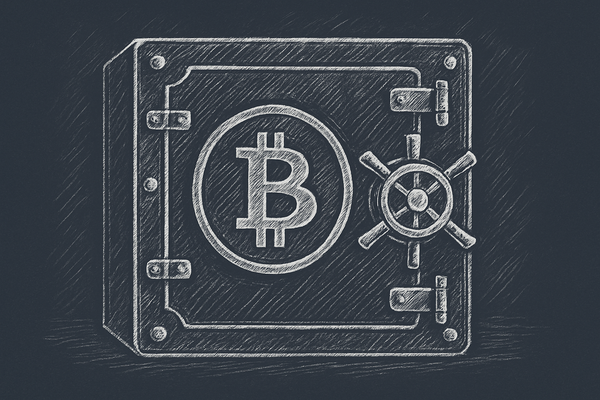Who Can Benefit from Bitcoin Escrow Services
Key sectors that stand to gain from using bitcoin settlement via escrow.

In high-value transactions, where assets worth millions change hands across borders, traditional escrow often introduces unnecessary delays and risks. Bitcoin escrow, built on multisig technology, offers a non-custodial alternative that keeps funds under cryptographic control while ensuring conditions are met. This approach suits a range of industries dealing with complex, bespoke deals. Below, we explore key sectors that stand to gain, highlight fraud vulnerabilities, and address cross-border hurdles. Ultimately, any party involved in substantial, customized sales can leverage this model for greater security and efficiency.
Real Estate: Global Property Deals
Real estate transactions, from luxury villas to commercial complexes, frequently involve international buyers and sellers. Escrow here holds deposits until title transfers, inspections, and regulatory approvals clear. Bitcoin's borderless nature allows funds to settle without relying on slow banking networks, making it ideal for deals spanning continents.
Fraud remains a persistent threat. Scammers often impersonate closing agents via email to divert wire transfers, leading to massive losses. In one case, professionals in California's Bay Area were sentenced for a scheme involving over $55 million in fraudulent real estate dealings. Title fraud, where deeds are forged, can result in buyers losing properties entirely. These risks amplify in high-stakes sales, where haste or complexity leaves openings for deceit.
Aviation: Aircraft Acquisitions
The aviation sector handles sales of private jets and helicopters, often valued in the tens of millions. Escrow secures payments pending airworthiness certifications, FAA registrations, and pre-purchase inspections. Bitcoin escrow enables swift, verifiable releases without intermediary holds, streamlining what can be a protracted process.
Deception in this space includes falsified documentation to misrepresent ownership or maintenance history. A Florida broker was recently sentenced for conspiring in wire fraud related to aircraft parts, highlighting how misrepresentations can taint entire deals. Another massive scheme in Texas involved fraudulent aircraft transactions totaling $350 million, with deals layered to conceal prior frauds. Such cases underscore the need for ironclad fund protection in an industry prone to opaque records.
Yachts: Luxury Vessel Sales
Yacht purchases entail sea trials, flag registrations, and lien checks, with values soaring into eight figures. Escrow acts as a neutral buffer, releasing funds only after all maritime conditions are satisfied. Bitcoin's 24/7 settlement appeals to global yacht markets, avoiding time-zone mismatches in traditional wires.
Scams here exploit the glamour, such as listing non-existent vessels or forging Coast Guard papers to solicit deposits. Sellers have fallen victim to overpayment schemes, where fake checks exceed the price and request refunds via wire. One reported tactic involves scammers posing as buyers, demanding vessel inspection reports while planning to vanish with preliminary funds. These ploys thrive on the sector's reliance on trust and distance between parties.
Fine Art: Collectibles and Masterpieces
Art deals revolve around provenance, authenticity, and discreet transfers, often at auctions or private sales. Escrow holds payment until certificates and appraisals align. Bitcoin facilitates pseudonymous, rapid settlements, bypassing galleries' high fees for international collectors.
Forgeries and fraud dominate headlines. A Pennsylvania man was imprisoned for a scheme peddling fake Picassos, Basquiats, and Warhols, defrauding buyers out of millions. The Inigo Philbrick case involved an $86 million Ponzi-like art swindle, selling shares in works multiple times over. Similarly, the Knoedler Gallery scandal netted $80 million from counterfeit Rothkos and Pollocks. Opacity in the art world invites such exploitation, making secure escrow essential.
An Obscure Example: Fine Wine Portfolios
Beyond mainstream luxuries, fine wine collections—vintages from Bordeaux or Burgundy—represent a niche market valued at hundreds of millions annually. Investors trade cases or cellars, requiring bonded storage transfers and expert valuations. Bitcoin escrow can lock funds until authenticity and condition are verified, appealing to this specialized crowd.
Counterfeiting plagues the sector. A UK trio was convicted in a £37 million scam, luring victims with glossy brochures and luxury events promising high returns on Bordeaux investments. Rudy Kurniawan's infamous fraud involved faking rare wines, leading to convictions and exposing vulnerabilities in provenance checks. Such schemes often target retirees, resulting in losses like the £6 million from one Bordeaux fraud ring. Escrow mitigates these by conditioning releases on verifiable deliveries.
Difficulties in Cross-Border Asset Transfers
High-value deals frequently cross jurisdictions, compounding issues. Regulatory variances—such as EU VAT versus U.S. duties—can halt shipments, while customs seizures for undeclared items add delays. Compliance with sanctions and AML rules demands extensive documentation, inflating costs up to 1-2% of the transaction value. Liquidity hurdles and intermediary banks further slow processes, with holds lasting days or weeks.
International bank transfers exacerbate these. Large sums trigger fraud flags, leading to frozen accounts or rescinded wires. Fees, including FX markups of 2-5%, erode value, while intermediary charges lack transparency. Global events, like pandemics, can extend delays indefinitely. These frictions make traditional methods ill-suited for time-sensitive, high-stakes exchanges.
The Broad Appeal: Any High-Value, Custom Transaction
Bitcoin escrow isn't limited to these industries. Anyone selling substantial assets with tailored terms—vintage cars, rare manuscripts, or even thoroughbred horses—can benefit. Multisig ensures funds release only upon mutual agreement, reducing reliance on vulnerable fiat systems. At Tetrapolar, our 2-of-3 model exemplifies this: buyer, seller, and neutral party hold keys, with no single entity in control.
In a world of escalating fraud and border barriers, bitcoin escrow builds trust without the pitfalls of custody. It empowers secure, efficient deals for those navigating complex markets.





